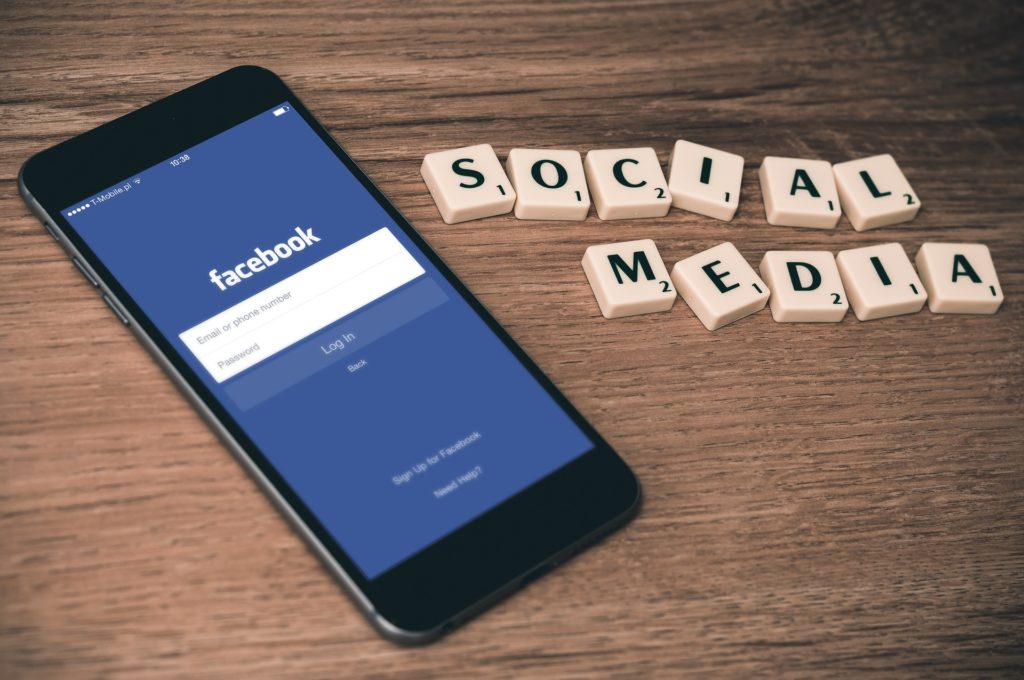
Recently, my wife and I went out for a nice dinner together—it was there that our hearts sank! Across the room, the familiar, awkward, flirtatious and misconnected movements of a “first date couple” proceeded. As a therapist, the sinking moment for my heart came as I said to my wife, “Look, they are both on their phones—again!”
Time after time, I witness grown adults unable to maintain a social connection in person. There is a growing epidemic of adults “returning to their attachment figure”—their safety net—the smartphone connected to “social” accounts.
Social Media, Technology, and False Connection
 You have probably witnessed the growing disconnection between real people as the connection to interactive devices grows.
You have probably witnessed the growing disconnection between real people as the connection to interactive devices grows.
An article in the Independent written by a known psychologist names that “loneliness is about the quality rather than the quantity of relationships,” and that “those who have been lonely for a number of years will have anxiety about making new friends, they may be distrustful of others and feel low about their own social skills [1].”
Forbes quoted a recent study that further shows how isolated we have become: 48 percent of respondents said they had one person they could confide in, compared with a similar study 25 years ago where people said they could confide in three others [2]. We are growing apart—just like the couple my wife and I witnessed. Maybe they would end up dating, and sleeping together, but I wonder: Will they ever really know one another?
The Power of Deep Relationships
Brooks summates our longings for relationship like this: “Your unconscious wants to entangle you in the thick web of relations that are the essence of human flourishing. It longs for and pushes for love…[3]”
This gets right to the heart of social technologies potency; we are promised rapid, thick and weaving connection. Yet the connection is actually temporary, leads to comparison and lacks the full-orbed experience of human emotion and need. As mentioned above, people become attached to the technology, not the people. The opposite of their intention!
“Whether someone has a network of good relationships or is alone in the world is a much stronger predictor of happiness than any other objective predictor [4].”
Happy, connected people are not often tempted by addiction or sexual encounters outside of relationships. Denial may help unhappy people think these encounters are happy—yet they are robbed of the deeper connection they truly seek. When I am truly known and accepted by you, and you by me, then mutually we are soothed, supported and feel freer to flourish; it is how we are made.
Coping with Loneliness Through Technology
 When loneliness or boredom settle in, it is easy to reach for tech. Apps like Instagram, Facebook and Snapchat are highly rewarding neurochemically, as they release dopamine with each new image, comment, message. This leads to a high risk of addiction.
When loneliness or boredom settle in, it is easy to reach for tech. Apps like Instagram, Facebook and Snapchat are highly rewarding neurochemically, as they release dopamine with each new image, comment, message. This leads to a high risk of addiction.
Therefore, when our loneliness or boredom make us reach for social connection, we can quickly become addicted to these shallow forms of engagement and reduce our ability to authentically connect to other people. We may know more of what is going on in a person’s life, but we start to know them less.
These patterns can evolve and include sexual materials or conversations—which for many become the substitute for deep human connection. The volume of hookup apps and websites has exploded in recent years, making short sexual encounters readily accessible [5]. And, sexual or phone addiction expand rapidly.
Momentary connections by phone, be it with social apps, porn, or setting up the next hookup, can become a false antidote for loneliness and emotional pain. This is a dire situation in our communities as we become increasingly isolated and addicted.
What Can I Do?
If you resonate with this article, I would encourage you to consider three highly practical steps to help yourself reconnect, end isolation, and any sexual dependence.
- Start a smartphone (tech) diet: Delete social media apps, find one spot in your home that your phone (computer/tablet) always stays, and track how much time you spend on “shallow connection” as opposed to face-to-face interaction. Never look at your phone in the car or when you are eating.
- Build social connection: Start with your current interests, work and friends. Explore ways that you could increase your connectedness in face-to-face moments with these networks. This could include clubs, fitness, interest groups, dinner, and more! Practice the art of curiosity with these people, really attempting to find out more than the surface level that we often present to one another.
- support group (they are far better than you can imagine) to help you transition to healthier behaviors. Increase this support with counseling and even inpatient help, if you need to. Denial over the support you need will only increase your burdens.
I encourage you to pause and take stock of how you are engaging with people, technology, isolation, sex and your commitment to living fully. As you do, you will start to discover how you are feeling in response to these issues.
 About the author: Paul Loosemore, MA PLPC, author of “21 Movements Towards Life” – The step-by-step guide to recovering from sexual addiction or pornography. Paul works as a mental health counselor, and consults with those who wish to recover from Sexual Addiction—both individuals and couples. He is the founder of www.stopsexualaddiction.com where you can find his guide, or contact him.
About the author: Paul Loosemore, MA PLPC, author of “21 Movements Towards Life” – The step-by-step guide to recovering from sexual addiction or pornography. Paul works as a mental health counselor, and consults with those who wish to recover from Sexual Addiction—both individuals and couples. He is the founder of www.stopsexualaddiction.com where you can find his guide, or contact him.
References:
[1]: Harris, R. (2015). The loneliness epidemic: We're more connected than ever--but are we feeling more alone? Retrieved June 12, 2017, from http://www.independent.co.uk/life-style/health-and-families/features/the-loneliness-epidemic-more-connected-than-ever-but-feeling-more-alone-10143206.html
[2]: Warrell, M. (2012). Talk or text: Is technology making you lonely? Retrieved June 12, 2017, from https://www.forbes.com/sites/womensmedia/2012/05/24/text-or-talk-is-technology-making-you-lonely/#5288754b2a7b
[3]: Ibid.
[4]: Brooks, D. (2011) The social animal: The hidden sources of love, character, and achievement. Random House: NY
[5]: Weiss, R., & Schneider, J. P. (2014). Closer together, further apart: the effect of technology and the Internet on parenting, work, and relationships. Carefree, AZ: Gentle Path Press.
The opinions and views of our guest contributors are shared to provide a broad perspective of addictions. These are not necessarily the views of Addiction Hope, but an effort to offer discussion of various issues by different concerned individuals.
We at Addiction Hope understand that addictions result from a combination of environmental and genetic factors. If you or a loved one are suffering from an addiction, please know that there is hope for you, and seek immediate professional help.
Published on July 28, 2017.
Reviewed By: Jacquelyn Ekern, MS, LPC on July 28, 2017.
Published on AddictionHope.com
